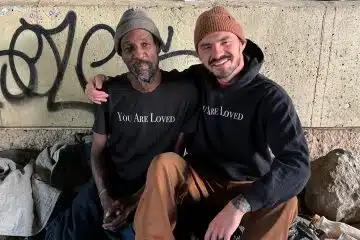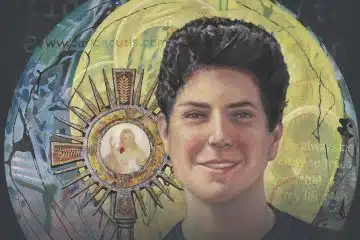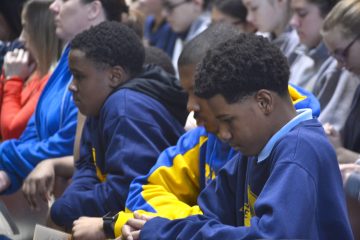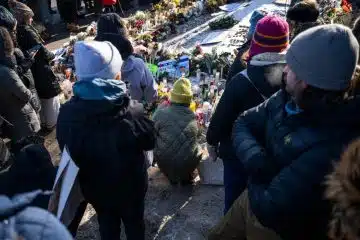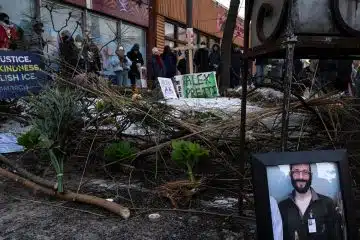The Uncelebrated Roots of Holy Days

“Walk with your feet on earth, but your heart in heaven.” —St. John Bosco
Six-year-old Peter sat listening to his older brothers and little sister chat excitedly about Santa. It was early October, not even close to Christmas, but they exchanged stories of hearing reindeer on the roof and how that one friend at church swore he found Ol’ St. Nick’s white glove among his gifts under the tree. A thoughtful boy grounded in reality, Peter nonchalantly contributed to the conversation: “I don’t think Santa leaves us presents. I think parents do it.”
My eyes went wide as I sipped my coffee. So far as I knew, we still had a house of “believers,” and Andrew and I kept a pretty tight lid on the fact that we were the ones eating the milk and cookies.
Peter’s siblings vehemently protested with assertions of Christmas magic until four-and-a-half-year-old Jane broke into the argument with: “How did Santa survive?”
“Survive?” I asked.
“Santa is St. Nicholas,” she reminded me. “All the other saints died, but St. Nicholas is in the North Pole, and he’s super old.”
“Interesting!” I said, throwing back my last swallow and redirecting everyone to the next activity. But my own musing on death, saints, and holy days would later resurface.
I took the crew to the store for a light grocery run. There was Halloween merchandise everywhere; some of which we dodged because it scared the kids. As the bulk bags of candy gave them a buzz of excitement, they started talking costumes and plans for October 31. “The Niemeyer’s pray after they go trick-or-treating,” my son, Thomas, reported. It was true. This family from our parish was the first we knew who actually celebrated All Hallows’ Eve as day one of Hallowtide, a three-day observance that helps us, the faithful, reflect on our own mortality and the hope of eternal life with the Lord.
What my family had yet to learn was that Halloween itself is for the Church Militant, the faithful on earth still fighting in spiritual warfare and still in need of grace to fight off and heal from sin. Before celebrating All Saints’ Day (a feast for the Church Triumphant in heaven) and All Souls’ Day (the feast for the Church Suffering in Purgatory), Halloween, in its true form, beckons us to embrace the reality of death, not to scare us, but to underscore that we’re made for full union and happiness with God. It’s the real meaning and purpose of the day now secularly focused on all things macabre, including fear of death.
But because that holy reality is not packaged and marketed, the deep truth of Hallowtide is easily missed, just like the profound reality of the Incarnation at Christmas and the Resurrection at Easter. We can all lose sight of holy days’ foundational significance, but children are especially subject to the distraction because they don’t yet comprehend the spiritual reality of these solemnities. Bedazzled by candy and presents, their attention turns inward on these holidays that are meant to draw our hearts away from the things of this world, toward eternal bliss with God. Shoot, isn’t that really all of us?
Maybe we parents missed some deeper roots growing up, so they seem foreign now. That’s okay. We don’t have to miss them anymore. We can dive in and rediscover the grace available to us in each feast and the constant beckoning to live for something greater. There are countless resources on liturgical living—for children and everyone up through aspiring theologians—and with so many feasts ahead, even small changes in how we celebrate them will open us to the wonder of heaven in each of those days. Let’s choose to step into that rhythm—teaching and leading our children and reminding ourselves that every holy day is meant to point us to heaven. ✣
 Katie Sciba is a national speaker and Catholic Press Award-winning columnist. She and her husband Andrew were married in 2008, and are blessed with seven children.
Katie Sciba is a national speaker and Catholic Press Award-winning columnist. She and her husband Andrew were married in 2008, and are blessed with seven children.
This article appeared in the October 2025 edition of The Catholic Telegraph Magazine. For your complimentary subscription, click here.


